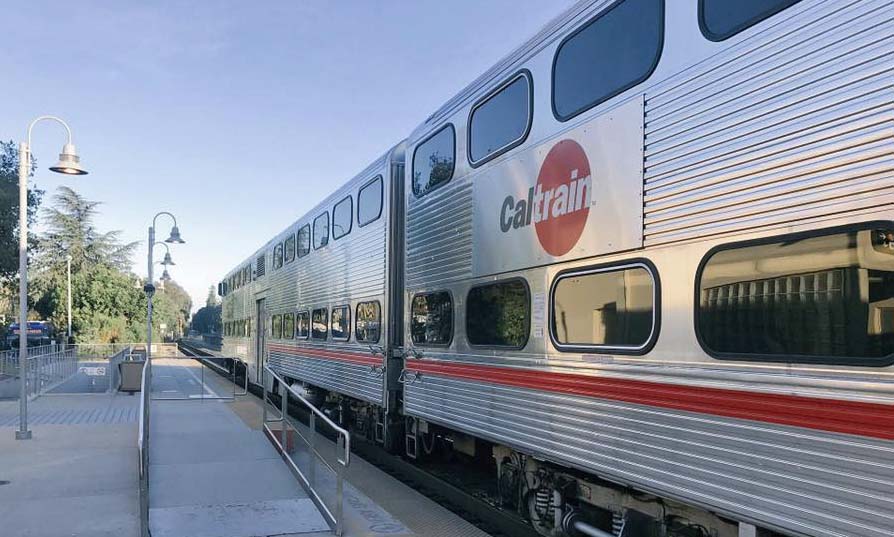The future of Caltrain is uncertain after the San Francisco Board of Supervisors on Tuesday declined to support placing a sales tax measure on the November ballot to rescue the transit agency, which has been financially decimated by the COVID-19 pandemic.
The proposed 1/8-cent sales tax, which would generate about $100 million for Caltrain, needed support from the elected boards in all three counties where its operates — San Francisco, San Mateo and Santa Clara. Lack of support from San Francisco means the tax is a no-go. San Mateo County officials are none too pleased.
“Regrettably, the SF Board of Supervisors has just declined to introduce the lifeline @Caltrain tax measure, effectively killing this effort,” Tweeted San Mateo County Supervisor Dave Pine, who also serves as chair of the Peninsula Corridor Joint Powers Board.
Caltrain receives 70 percent of its funding from fare box revenue and is the only Bay Area public transit system without a dedicated source of funding. Prior to the COVID-19 pandemic’s impact on ridership, the transit agency had pitched the tax as a way to increase service frequency, capacity and ridership and prevent mounting traffic congestion. Now, dedicated funding is also viewed as an emergency source of support for a transit agency that saw a 95-percent drop in ridership during the COVID-19 shelter-in-place orders.
State Assemblymember Kevin Mullin said every state legislator representing the three counties supports putting the sales tax measure on the November ballot and called the lack of support by the San Francisco Board of Supervisors “irresponsible.”
“@sfbos fails to act while the system is on life support, endangering commuter service for parochial reasons,” Mullin said.
The tax revenue is “incredibly important to the continued existence of Caltrain,” added Belmont Vice Mayor Charles Stone, who criticized San Francisco Supervisor Shamann Walton over his attendance record at transit board meetings.
“It’s really hard to have a conversation when the [San Francisco Board of Supervisors representative] on the Caltrain board leaves the meeting early,” Stone said.
Walton stated on social media he couldn’t support the tax measure without a commitment to give his city more representation of Caltrain’s governance.
“They say I am trying to hold the tax hostage, I say they are trying to extort San Francisco and Santa Clara County and use our tax dollars for their benefit and would continue to disregard SF’s concerns,” Walton said.
Former San Mateo Mayor Sue Lempert called the SF Board’s actions a “shocking surprise.”
“The ballot measure could be dead and Caltrain could be shut down for years unless you act now and demand they reconsider,” Lempert said. “[ Board President Norman Yee] and the San Francisco Board of Supervisors still can save the day by advancing the Caltrain ballot measure with a supermajority vote by July 31.”
She urged residents to email Yee demanding that voters be allowed to decide on the measure.
Meanwhile, Caltrain responded to San Francisco’s inaction with a call-to-action on Twitter: “Caltrain needs dedicated funding. Pass it on.”






